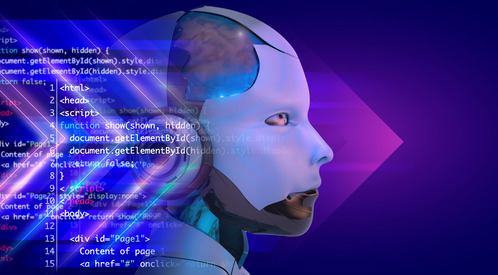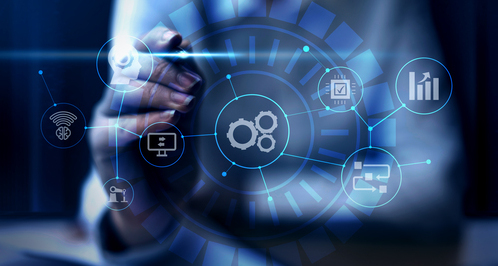Unlocking HR Potential: The Transformative Benefits of Generative AI in Human Resources
3AI August 23, 2023

Featured Article:
Author: Vipin Verma, Orange Business Services
Introduction to Generative AI in Human Resources
Human Resources (HR) is a critical function in any organization, responsible for managing and developing the most valuable asset: the workforce. With the advancements in technology, particularly in the field of Artificial Intelligence (AI), HR has the opportunity to unlock its potential and revolutionize the way it operates. One such technology that holds transformative benefits for HR is Generative AI. In this article, we will explore the potential of Generative AI in revolutionizing HR practices and discuss how it can contribute to the growth and success of organizations (with special focus on the role of Generative AI in HR Analytics) .
Generative AI, a branch of AI that focuses on creating original content, has gained significant attention and proven its capabilities in various industries. It utilizes machine learning algorithms to generate realistic and creative outputs such as text, images, music and even code (which opens immense possibilities in data analytics & other applications) . When applied to HR, Generative AI can automate and optimize several key processes, enabling HR professionals to focus on strategic initiatives and create a positive impact on the organization.
In the following sections, we will delve into the transformative benefits that Generative AI brings to HR. We will explore how it can streamline recruitment processes, enhance employee training and development, improve employee engagement and satisfaction, and optimize workforce planning and management. Through real-world examples and case studies, we will highlight the success stories of organizations that have embraced Generative AI in HR. Additionally, we will address the ethical considerations associated with its implementation and discuss the steps organizations can take to ensure fairness, transparency, and accountability.
By the end of this article, you will have a comprehensive understanding of how Generative AI can unlock the potential of HR, empowering organizations to build high-performing teams, nurture talent, and drive sustainable growth. So, let’s embark on this journey to uncover the transformative benefits of Generative AI in Human Resources.
Benefits of Generative AI in Human Resources
Generative AI has the potential to make a significant impact in various areas of human resources (HR). Here are some potential applications of generative AI in HR:
1. Candidate Screening and Recruitment:
Generative AI can streamline and enhance the candidate screening and recruitment process. AI algorithms can analyze resumes, cover letters, and other applicant data to identify qualified candidates and provide recommendations to HR professionals. Generative AI can generate Job descriptions with focus on key skills required for the position. This can save time, improve the efficiency of the hiring process, and reduce bias in candidate selection.
2. Employee Training and Development:
Generative AI can be used to develop personalized training programs for employees. By analyzing individual learning styles, performance data, and skill gaps, AI algorithms can generate tailored training content and learning pathways. This can improve employee engagement, accelerate learning, and enhance professional development. In addition, Generative AI can deliver training content through AI generated and powered trainer.
3. Employee Engagement and Retention:
Generative AI can help HR departments in understanding and improving employee engagement and retention. AI algorithms can create and analyze employee feedback, surveys, and sentiment data to identify factors influencing engagement and satisfaction. Based on these insights, Generative Ai can help HR professionals generate strategies and interventions to enhance employee well-being and retention.
4. Performance Management and Feedback:
Performance management is one of the most critical event (irrespective of the frequency) each year for an employee. Even though most organizations have measurable objectives & processes to assess employee performance, it is generally believed be based on the “bias” of the managers performing the assessment.
Generative AI can assist managers in performance management by analyzing performance data gathered throughout the year and generating feedback for employees. AI algorithms can provide objective insights, identify areas of improvement, and suggest development opportunities. This can facilitate fair and consistent performance evaluations and support employee growth.
5. Employee Benefits and Wellness:
Generative AI can provide personalized recommendations for employee benefits and wellness programs. By analyzing individual preferences, health data, and contextual factors, AI algorithms can generate tailored suggestions for benefits packages, wellness initiatives, and work-life balance arrangements. This can improve employee satisfaction, well-being, and productivity.
6. HR Analytics and Decision-making:
Generative AI can help HR departments leverage data analytics for informed decision-making. By analyzing vast amounts of HR data, including employee records, performance metrics, and demographic information, AI algorithms can generate insights, predictions, and recommendations to support HR strategies and initiatives. It is worth noting that while generative AI can offer significant advantages in HR, it is important to ensure fairness, transparency, and ethical use of AI algorithms to mitigate biases and protect employee privacy. HR professionals should also maintain a human-centered approach, using AI as a tool to augment decision-making rather than replacing human judgment and empathy.
HR Analytics focus of Generative AI
HR Analytics refers to the practice of using data analysis and insights to make informed decisions and improve HR strategies. Generative AI can play a crucial role in HR analytics by analyzing vast amounts of HR-related data and generating valuable insights. Here’s how generative AI can enhance HR analytics and decision-making:
1. Data Analysis and Visualization:
Generative AI algorithms can analyze complex HR datasets, including employee records, performance data, engagement surveys, and more. By applying advanced data analysis techniques, AI algorithms can uncover patterns, correlations, and trends that may not be easily identifiable by humans alone. This enables HR professionals to gain a deeper understanding of workforce dynamics, identify areas of improvement, and make data-driven decisions.
2. Predictive Analytics:
Generative AI can leverage historical HR data to make predictions about future outcomes. By analyzing patterns and trends, AI algorithms can generate predictive models that assist in forecasting various HR-related metrics such as employee turnover, performance, and engagement. This enables HR professionals to proactively identify potential issues, plan interventions, and optimize workforce strategies.
3. Talent Acquisition and Succession Planning:
Generative AI can support talent acquisition efforts by analyzing historical data on successful hires, their qualifications, and performance metrics. AI algorithms can generate predictive models to identify the characteristics, skills, and experiences that lead to successful hires. This information can guide HR professionals in making more informed decisions when screening candidates and selecting the best fit for specific roles.
4. Workforce Planning and Optimization:
Generative AI can assist HR professionals in workforce planning and optimization. By analyzing HR data, including employee demographics, skills/competencies, and performance, AI algorithms can generate insights on optimal organizational structures, identify skill gaps, and recommend training or hiring strategies. This helps HR departments align the workforce with strategic goals, improve resource allocation, and optimize talent deployment.
5. Diversity and Inclusion:
Generative AI can contribute to promoting diversity and inclusion in the workplace. By analyzing demographic data and measuring diversity metrics, AI algorithms can identify areas where diversity and inclusion initiatives may be needed. It can also generate recommendations for improving representation, reducing bias, and fostering inclusive practices, enabling HR professionals to create more diverse and inclusive work environments.
6. Decision Support:
Generative AI can provide decision support to HR professionals by generating recommendations and alternative scenarios based on analyzed data. It can simulate the potential impact of different HR strategies, policies, or interventions, allowing HR professionals to evaluate their potential outcomes before implementation. This helps in making more informed decisions, reducing risks, and optimizing HR practices.
By leveraging generative AI in HR analytics and decision-making, organizations can enhance their understanding of the workforce, make data-driven decisions, and create more effective HR strategies that align with business objectives and promote employee engagement and success.
Case Studies
Here are a few brief case studies that highlight the application of generative AI in HR analytics and decision-making:
1. Case Study: Talent Acquisition Optimization
A global technology company implemented generative AI algorithms to optimize their talent acquisition process. By analyzing historical data on successful hires, AI algorithms identified patterns and characteristics that correlated with high-performing employees. This enabled the HR team to develop a predictive model for candidate screening, allowing them to prioritize candidates with traits similar to top performers. As a result, the company experienced a significant increase in the quality of new hires and improved overall team performance.
2. Case Study: Diversity and Inclusion Enhancement
A large financial institution utilized generative AI to enhance diversity and inclusion within their organization. By analyzing employee demographic data and performance metrics, AI algorithms identified areas with underrepresented groups and imbalanced promotion rates. The algorithms generated recommendations for targeted recruitment efforts, diversity training programs, and inclusive policies. The HR team used these insights to implement initiatives that successfully improved diversity and fostered a more inclusive work culture.
3. Case Study: Employee Turnover Prediction
A retail company leveraged generative AI to predict and reduce employee turnover. By analyzing historical employee data, such as performance records, survey responses, and demographic information, AI algorithms developed a predictive model for turnover risk. The model identified factors contributing to turnover, such as job satisfaction, compensation, and career growth opportunities. Armed with this information, the HR team implemented retention strategies, including targeted training, compensation adjustments, and improved career development programs, resulting in a significant reduction in turnover rates.
4. Case Study: Learning and Development Personalization
A professional services firm implemented generative AI to personalize learning and development programs for their employees. By analyzing individual employee performance data, skill assessments, and learning preferences, AI algorithms generated personalized training plans and recommendations. Employees received tailored learning content, including courses, modules, and resources, aligned with their specific needs and learning styles. This approach increased employee engagement, accelerated skill development, and improved overall performance.
These case studies illustrate how generative AI can be effectively applied in HR analytics and decision-making, leading to improved talent acquisition, enhanced diversity and inclusion, reduced employee turnover, and personalized learning and development. These applications demonstrate the potential of generative AI to transform HR practices and optimize workforce strategies.
Conclusion
Generative AI has the potential to transform HR practices, enabling organizations to streamline recruitment, enhance employee training and development, improve engagement and satisfaction, and optimize workforce planning. However, ethical considerations and challenges must be addressed to ensure fair and transparent AI-driven HR processes. By embracing Generative AI, organizations can create an empowered and thriving workforce in an increasingly competitive business landscape.
Title picture: freepik.com






